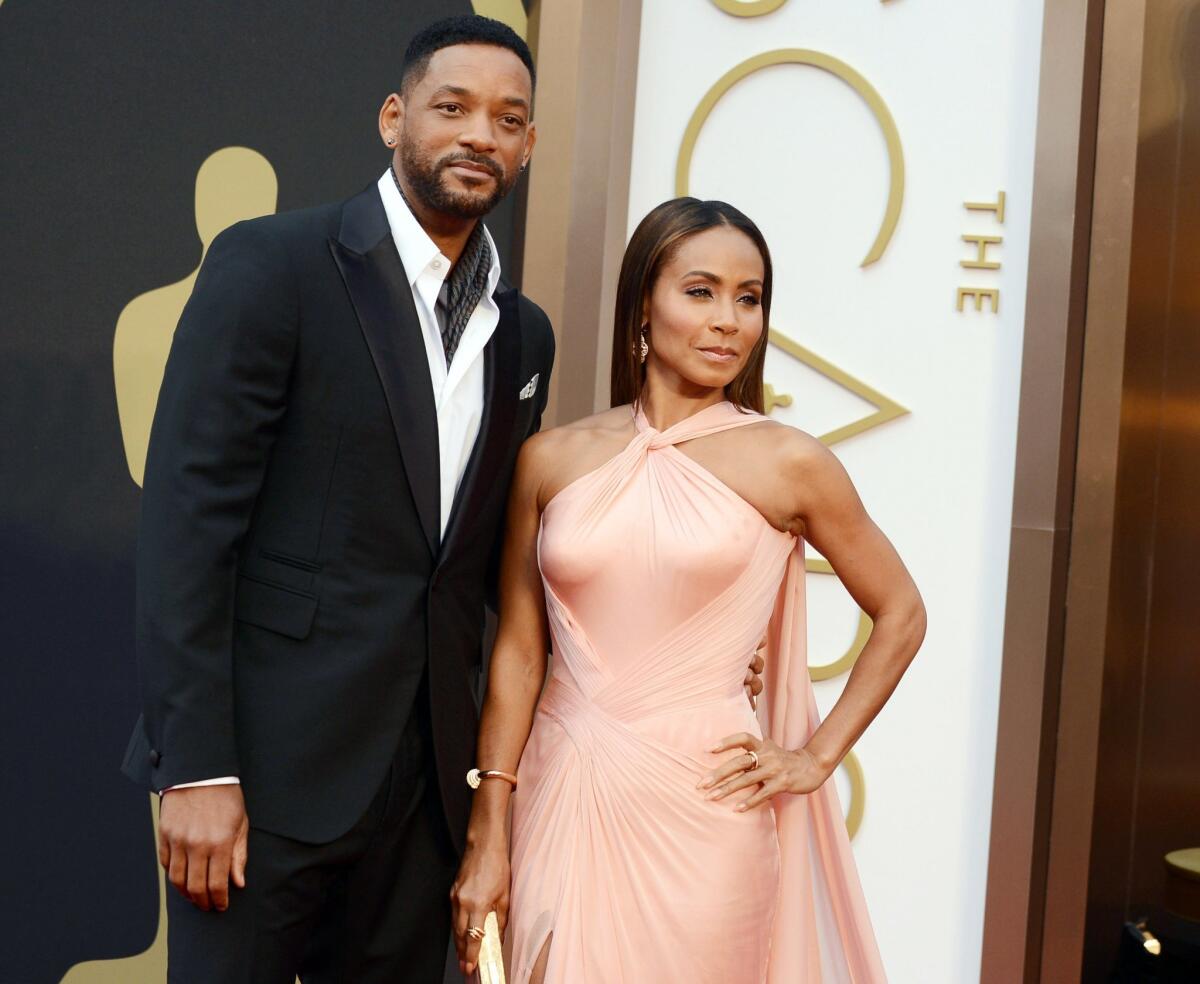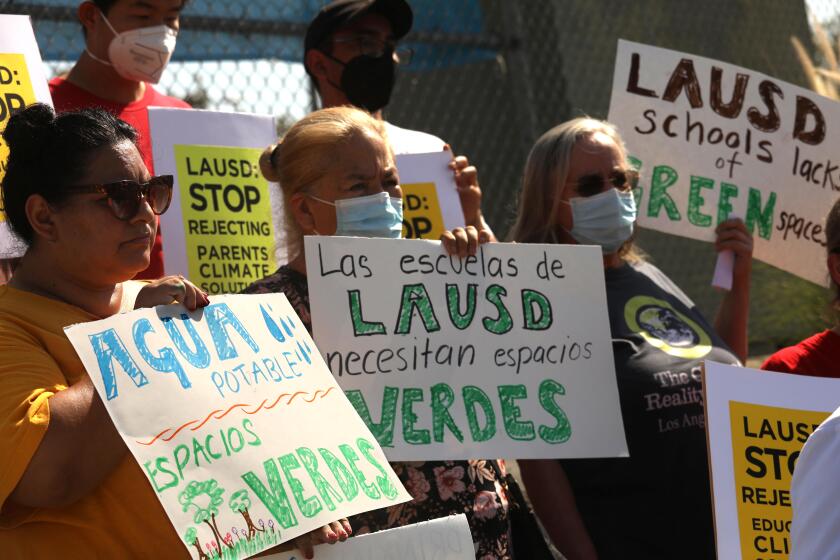Opinion: Are the academy’s diversity actions enough to end the #OscarsSoWhite boycott?

Will Smith, left, and Jada Pinkett Smith arrive at the Oscars ceremony in 2014.
- Share via
The Academy of Motion Picture Arts and Sciences announced new measures Friday to increase diversity among its members after its predominately white slate of Oscar nominees sparked a national outcry.
Faced with the publicity nightmare of the trending #OscarsSoWhite hashtag on social media and a proposed boycott of the 2016 awards by several prominent actors of color, the academy vowed to double its female and minority membership by 2020 and set new restrictions to limit lifetime voting rights. In a statement, the academy announced its belief that “this is a necessary step in the right direction.”
After two years in a row of overwhelmingly white and male recognition at the Academy Awards, many viewers and industry voices are encouraged to see active effort from the awards body. Jada Pinkett Smith was one of many actors who announced upon hearing the overwhelmingly white list of Oscar nominees that she would not be attending the award show.
In response to the academy’s announcement Friday, Pinkett Smith was thankful:
That said, she didn't call for an end to the boycott.
Editor and former attorney April Reign, who created the #OscarsSoWhite hashtag a year ago, echoed Pinkett Smith. But she was unambiguous that this was only the beginning of a much larger need for change.
She was even more direct in identifying the scope of the problem in an interview with The Times: "We still need to put pressure on the Hollywood studio heads to make more inclusive and diverse films because the academy can only nominate quality work that has been made.”
Former academy President Hawk Koch agreed that the academy’s move was a good one. But he was cautious in a statement Friday:
“I do want to make sure that no matter who we bring in, they have the same level of expertise and qualification for membership, that it is not diluted to bring in more women and diverse members, but it stays high.”
Almost everyone seems to agree that the academy’s proposed actions are welcome and long overdue but still not sufficient to end the lack of diversity in Hollywood. But will they be enough to end the proposed Oscar boycott that has gained momentum among celebrities and politicians nationwide? There’s been no word from Spike Lee, who publicly announced his decision not to attend, or Tyrese, who has been urging host Chris Rock to boycott the show. Civil rights leader the Rev. Al Sharpton, who has been asking industry figures and viewers at home not to watch, hasn’t made his decision public either.
It appears it’s too soon to tell. What does seem clear is that regardless of how the academy’s membership changes the way Hollywood's projects are judged and awarded, this will have little effect if the industry itself fails to diversify the creative process of filmmaking.
An Oscar whiteout is bad. An industry whiteout is far, far worse.
A cure for the common opinion
Get thought-provoking perspectives with our weekly newsletter.
You may occasionally receive promotional content from the Los Angeles Times.



